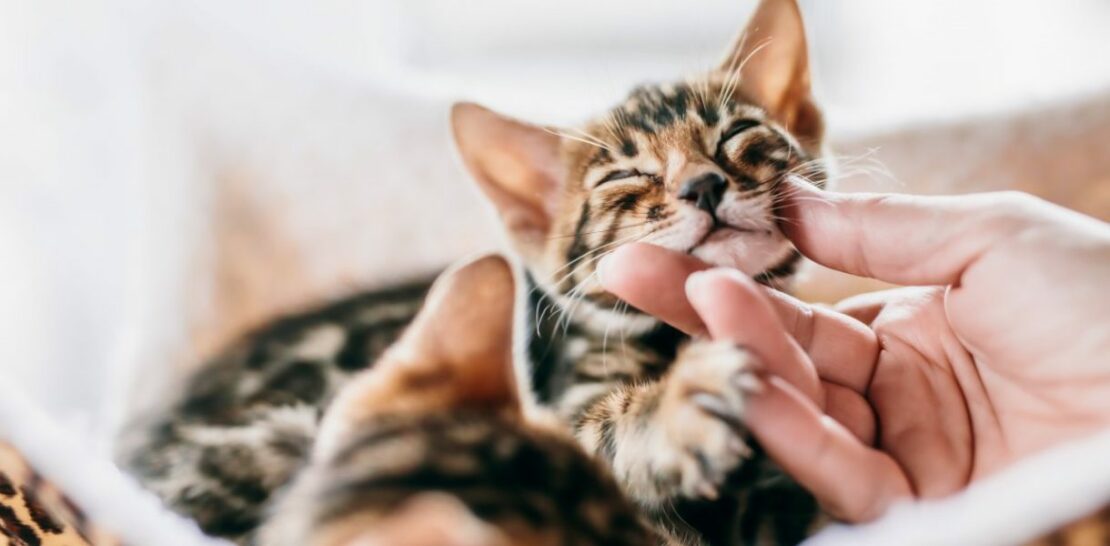Often viewed as enigmatic, mysterious, and even aloof, cats have been a source of fascination and companionship to humans for thousands of years.
Despite their sometimes hard-to-read demeanors, these adorable creatures offer a plethora of surprising benefits to their owners, ranging from emotional support to physical well-being.
In this comprehensive exploration of the human-cat relationship, we will delve into the history of domesticated cats, uncover the science behind their healing powers, and discuss the various ways they contribute to our overall happiness and health.
Discover how these captivating animals captivate our hearts and enrich our lives in more ways than one.
The Journey from Wild to Domesticated: Cats Throughout History
Before understanding the modern-day benefits of our furry friends, it is essential to appreciate their storied past. The history of domesticated cats is a fascinating tale of evolution, migration, and our ever-growing bond with these creatures.
The story begins approximately 10,000 years ago, when the first domesticated cats originated in the Near East. It is believed that as humans shifted from a hunting and gathering lifestyle to one of agriculture, they inadvertently attracted small rodents to their food stores. The presence of these pests caught the attention of wild cats, who began to frequent human settlements in search of a meal. Over time, a mutually beneficial relationship developed between humans and cats, with humans providing food and shelter in exchange for the cats’ rodent-catching prowess.
As cats and humans continued to coexist, the feline population began to diversify. Distinctive breeds emerged, each with their unique physical characteristics and temperaments. From the elegant Siamese to the affectionate Maine Coon, these breeds have become treasured members of families worldwide.
The allure of cats has extended beyond mere companionship, with various cultures ascribing religious and spiritual significance to the animals. For example, in ancient Egypt, cats were considered sacred and worshipped as protectors of homes and families. This reverence is evident in the plethora of cat-themed artwork, statues, and jewelry that has been discovered in Egyptian tombs and temples.
The Science of Feline Affection: How Cats Improve Our Emotional Well-being
There is no denying the warm, fuzzy feeling that washes over us when we snuggle with our cats. But did you know that there is scientific evidence to support the belief that cats can improve our emotional well-being?
- The Purr Factor: One of the most distinctive features of cats is their purr. Research has shown that the frequency of a cat’s purr falls within a range of 20-140 Hertz, which has been proven to promote healing in human bones and tissues. Moreover, the act of stroking a purring cat can release oxytocin, a hormone associated with relaxation, trust, and emotional bonding.
- Stress Reduction: Studies have found that interacting with cats can lower cortisol levels, a hormone responsible for stress. By lowering cortisol and increasing oxytocin levels, cats can effectively help us feel calmer and more at ease.
- Combatting Loneliness: Cats provide unwavering companionship, which can be especially beneficial for individuals living alone or experiencing feelings of isolation. Owning a cat can create a sense of purpose and responsibility, as well as providing a source of physical contact and affection.
- Mental Health Support: Research has indicated that cat ownership can be beneficial for those living with mental health challenges, such as anxiety and depression. The calming presence of a cat can provide a sense of stability and comfort, helping to alleviate negative emotions and symptoms.
Physical Benefits: Fueling a Healthier Lifestyle with Feline Friends
While the emotional benefits of cat ownership are significant, the advantages do not stop there. Cats also contribute to our physical well-being in a variety of ways.
- Heart Health: Studies have shown that cat owners are less likely to suffer from heart attacks and other cardiovascular issues, as the stress-reducing effects of interacting with cats can lower blood pressure and heart rate.
- Allergies and Immunity: Exposure to pet dander and allergens in early life has been linked to a reduced risk of developing allergies and asthma. Furthermore, owning a cat can improve our immune systems by exposing us to a diverse range of microbes, thereby strengthening our defenses against infections.
- Physical Activity: Although cats are often seen as low-maintenance pets, they still require regular play and engagement. This encourages cat owners to engage in physical activity, which can lead to improved fitness levels, weight management, and overall well-being.
- Therapy and Assistance: Cats have been successfully utilized as therapy animals for individuals with physical and cognitive disabilities. Their calming presence and gentle temperament can help improve motor skills, cognitive functioning, and emotional regulation for those in need.
A Bond Built on Love: The Unique Relationship Between Humans and Cats
The connection between humans and cats is a multifaceted and complex one. Beyond the tangible benefits of cat ownership lie the more profound, intangible aspects of our bond with these creatures.
The process of forming a bond with a cat can be a rewarding experience for both parties. Cats, being independent and discerning animals, often choose their humans carefully, making the establishment of trust and affection all the more meaningful. This deep connection between humans and cats can be observed in the ways that cats communicate with us, through a variety of vocalizations, body language, and even facial expressions.
Interestingly, studies have found that cats are more likely to mirror their owners’ personalities than dogs, suggesting that our feline companions may be more in tune with our emotions and behaviors than we realize. This empathetic connection between cats and humans fosters a sense of understanding and companionship that can be both comforting and uplifting.
The unique relationship between humans and cats extends beyond the walls of our homes, as well. The rise of internet culture has brought about a new appreciation for cats, with countless social media accounts, websites, and video platforms dedicated to celebrating these animals. This shared love of cats has created a sense of community among cat enthusiasts, further solidifying the bond between humans and their feline friends.
In conclusion, cats provide a wealth of benefits to those who open their hearts and homes to these enigmatic animals. From their storied history as domesticated companions to their scientifically proven powers of emotional and physical healing, cats offer an unparalleled level of support and companionship. As we continue to learn more about these captivating creatures, it becomes increasingly clear that the bond between humans and cats is one of mutual love, trust, and respect – a bond that truly enriches our lives and improves our overall well-being.




